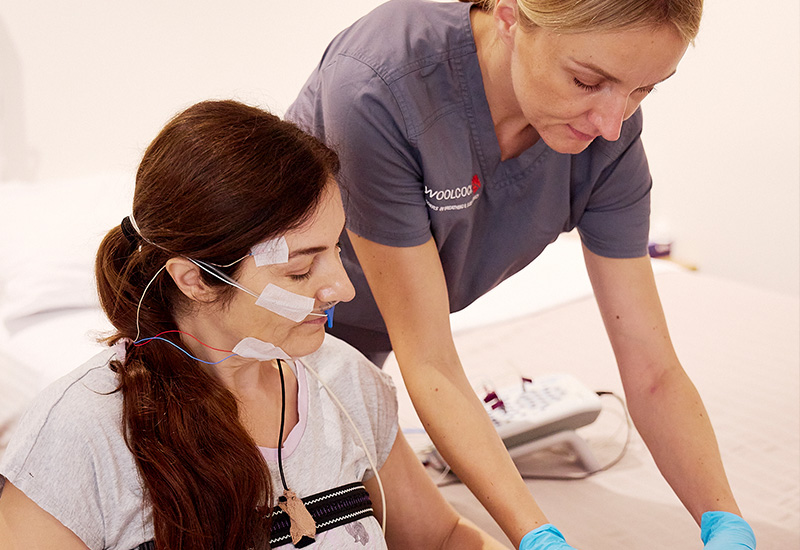Sleep disorders can significantly impact physical health, mental well-being, and daily performance if left untreated. Sleep specialists diagnose and manage a wide range of conditions using evidence-based evaluations and treatment plans. By offering services that address the underlying causes and symptoms, these experts help patients establish healthy sleep patterns and enhance overall well-being.
Diagnosing Sleep Disorders
Sleep specialists begin with thorough evaluations to understand your specific sleep problems. The evaluation process involves reviewing your medical history, sleep patterns, and symptoms. Sleep specialists examine factors that may contribute to your sleep disturbances, such as medications, lifestyle habits, and underlying health conditions.
During the initial consultation, specialists gather detailed information about your sleep schedule and quality. They ask about bedtime routines, how long it takes to fall asleep, and the frequency of nighttime awakenings. This comprehensive approach helps identify potential causes of sleep disorders and guides further testing decisions. The evaluation also includes physical examinations that focus on areas affecting sleep. Sleep specialists check your airway, throat, and breathing patterns.
Conducting Sleep Studies
Sleep studies provide detailed information about what happens during your sleep. These studies monitor various bodily functions throughout the night to identify sleep disorders. Sleep specialists use various types of studies tailored to your specific symptoms and suspected conditions.
Polysomnography is a comprehensive sleep study option. This overnight test takes place in a sleep laboratory where sensors monitor brain waves, breathing patterns, heart rate, and muscle activity. The study provides insights into sleep stages, breathing interruptions, and movement patterns during sleep.
Home sleep studies offer a more convenient alternative for certain conditions. These portable devices monitor breathing, oxygen levels, and heart rate while you sleep in your own bed. Sleep specialists often recommend home studies for suspected sleep apnea when overnight laboratory testing is not necessary.
Providing Tailored Treatment Plans
Sleep specialists develop individualized treatment plans based on your specific diagnosis and needs. Treatment approaches vary depending on the type of sleep disorder and its severity. These plans may include behavioral changes, medical interventions, or a combination of both approaches.
For sleep apnea, specialists often prescribe continuous positive airway pressure (CPAP) machines. These devices deliver steady air pressure to keep airways open during sleep. Sleep specialists work with patients to determine the optimal pressure settings and mask fit for effective treatment results. Other treatment options include medications for specific sleep disorders, lifestyle modifications, and improvements in sleep hygiene. Sleep specialists also provide guidance on creating a suitable bedroom environment, establishing effective sleep schedules, and adopting habits that promote better rest.
Offering Ongoing Support
Sleep specialists provide continued care to monitor treatment effectiveness and make adjustments when needed. Regular follow-up appointments help track progress and address any challenges that may arise with treatment plans. Follow-up care involves monitoring the effectiveness of treatments and identifying any potential side effects.
Sleep specialists may adjust CPAP settings, modify medications, or recommend further therapies based on patient responses. They also provide education about proper equipment use and maintenance. Sleep specialists collaborate with other healthcare providers as needed to address underlying conditions that impact sleep.
Get Expert Help for Sleep Disorders
Sleep specialists provide fundamental services for diagnosing and treating various sleep disorders. Their comprehensive approach encompasses thorough evaluations, specialized testing, and ongoing support. These services often help patients achieve better sleep quality and improved overall health. For persistent sleep problems that impact daily life, consult a sleep specialist for a professional evaluation, expert care, and treatment plans tailored to your specific needs.
